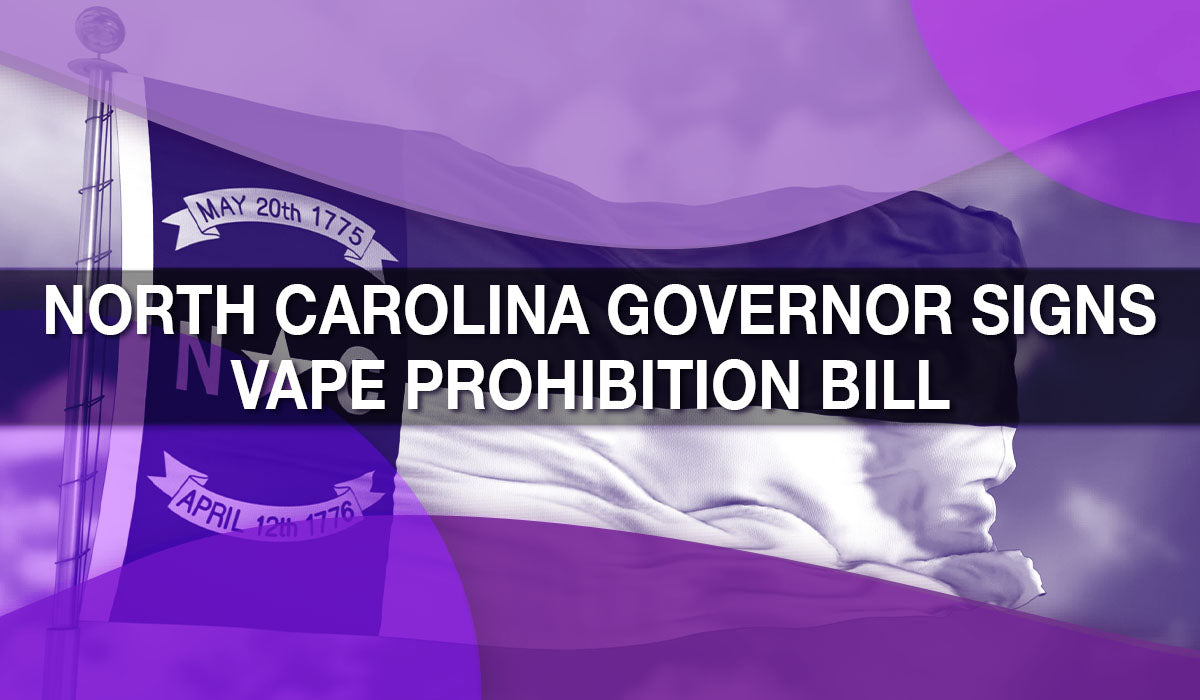
North Carolina Governor Signs Vape Prohibition Bill
Update March 2025
North Carolina has passed a new law that will regulate vaping products, creating a certification system to determine which products can be sold in the state. Governor Roy Cooper signed House Bill 900, which takes effect on May 1, 2025, ensuring that only authorized vape products remain on the market.
Key Takeaways from House Bill 900
-
Vape Product Certification
- Only products that have filed a Premarket Tobacco Product Application (PMTA) with the FDA by September 9, 2020 will be allowed.
- Manufacturers must submit certifications annually, starting March 1, 2025, verifying FDA approval or application status.
- A $2,000 initial fee and a $500 annual renewal fee apply to maintain product listings.
-
New Licensing Requirements (Effective July 1, 2024)
- Retailers and wholesalers must obtain a Vapor Products License for each location selling, storing, or distributing non-taxed vape products.
- Those already holding an Other Tobacco Products (OTP) License must apply for a new Vapor Products License or notify the state if they only sell vape products.
- Applications must be submitted by June 30, 2024, to avoid penalties.
-
How to Apply for a License
- Submit Form B-A-2 (new licenses) or Form B-A-2R (renewals) to the North Carolina Department of Revenue (NCDOR) along with payment. You can find the application form here.
- Additional requirements may include a bond or letter of credit for first-time applicants.
What This Means for Vape Businesses
These new regulations are designed to control the vape market by restricting sales to products that comply with FDA regulations. Businesses will need to ensure their products are certified and licensed to continue operations in North Carolina.
For more details, visit the NCDOR website or contact the Tobacco Project at (919) 716-6900.
In a move that has sparked significant controversy, North Carolina Governor Roy Cooper has signed a new bipartisan bill into law that establishes a vape registry. This legislation, aimed at regulating the vaping industry, will lead to the removal of many vaping products from store shelves, raising concerns among consumers and business owners alike about its potential prohibitive effects.
The New Vape Registry
The new law mandates that only products that have filed a Premarket Tobacco Product Application (PMTA) with the FDA by September 9, 2020 will be allowed in North Carolina.
The directory of approved products will be maintained by the North Carolina Department of Revenue.

Compliance and Enforcement
Retailers will have a 60-day grace period to comply with the new regulations once the directory is published. After this period, stores selling unauthorized products could face fines and the potential suspension or revocation of their licenses for repeat offenses. This strict enforcement framework is intended to eliminate unregulated products but may also limit consumer choices and negatively impact small businesses.
State Representative Erin Pare (R-Wake) has framed the bill as a necessary response to the vaping epidemic among high school students. “The vaping epidemic is quite the Wild West, particularly in high school,” Pare said. “That’s why this bill passed with broad bipartisan support. It brings order, enforcement, accountability, and transparency to a growing problem.”
Opposition and Concerns
The bill has faced significant opposition from various stakeholders who argue that it creates a de facto prohibition on many vaping products. Convenience store operators are particularly concerned about the economic impact. Ches McDowell, representing a group of Asian-American convenience store owners, warned that the law could lead to job losses and reduced revenue for small businesses reliant on vape sales.
The Vapor Technology Association also strongly opposed the bill, urging Governor Cooper to veto it. They argue that the FDA’s authorization process is flawed and that the new law inadvertently supports cigarette sales while harming public health by restricting access to vaping products. The association contends that vaping is a less harmful alternative to smoking, and restricting access could drive consumers back to traditional cigarettes.
Support from the Tobacco Industry
Interestingly, the bill has garnered support from the tobacco industry, with representatives like Susan Vick, a lobbyist for Reynolds American, advocating for its passage. This alignment raises questions about the bill’s true intent, as it appears to protect established tobacco interests by eliminating competition from unregulated vaping products. Vick highlighted the prevalence of unregulated products from China, emphasizing the need to control what is sold in the state.
Implementation Timeline
The law is set to take effect on December 1, with the product directory expected to be available by early 2025. Retailers will need to prepare for the transition, facing potential penalties if they fail to comply with the new regulations.
Conclusion
North Carolina’s new vape registry bill, while presented as a public health measure, has significant implications for consumer choice and small businesses. Critics argue that it creates a prohibitive environment for vaping products, potentially driving consumers back to more harmful alternatives like cigarettes. The support from the tobacco industry further complicates the narrative, suggesting that the bill may serve to protect established interests rather than public health.
As the state moves forward with implementation, it remains to be seen whether this legislation will achieve its intended goals or merely create new challenges for consumers and businesses in the vaping industry.


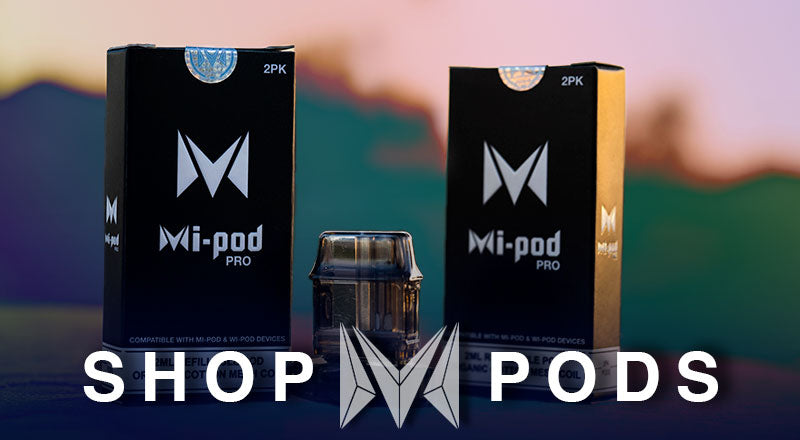
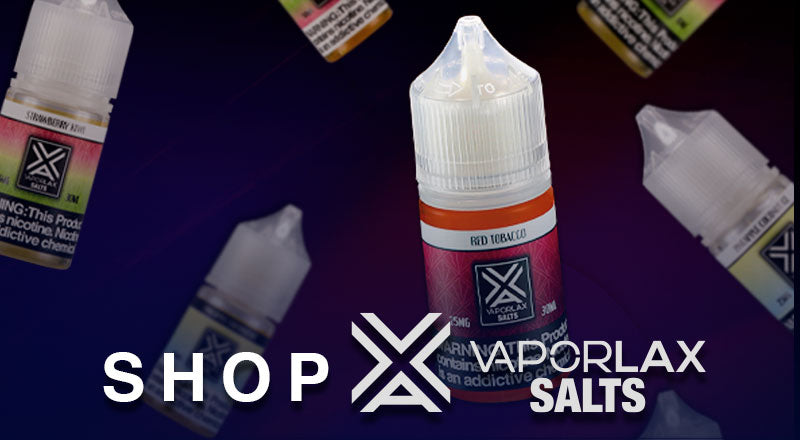
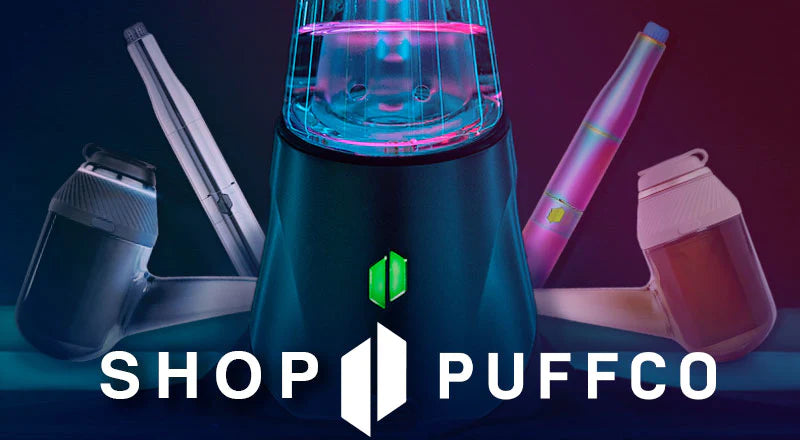


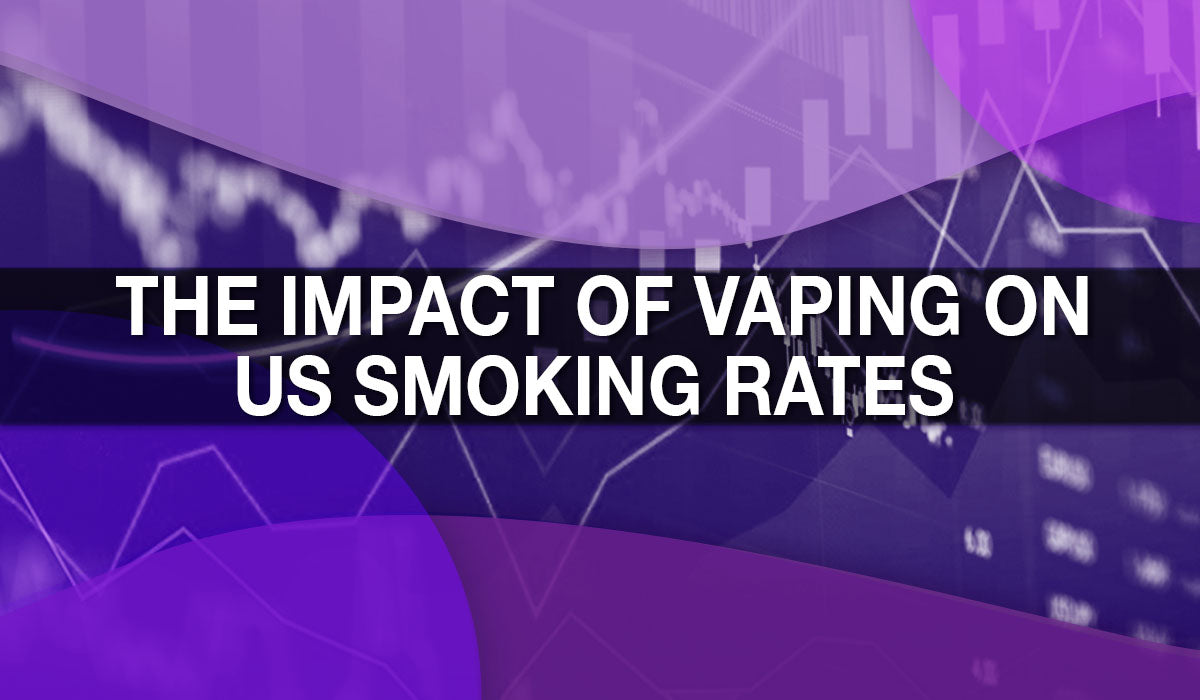

Leave a comment
This site is protected by hCaptcha and the hCaptcha Privacy Policy and Terms of Service apply.